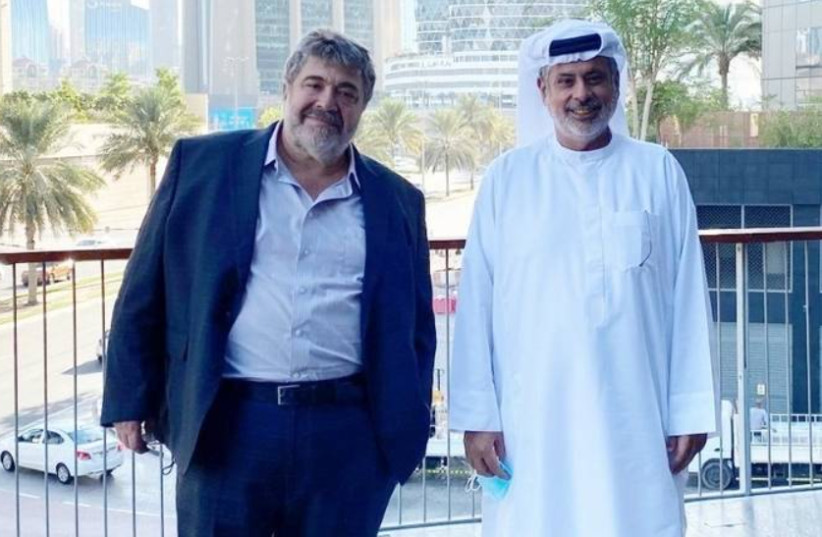Israel and the UAE are not only having photo opportunities but are moving forward in economic cooperation in concrete areas such as Fintech.
At a joint Israeli-Emirati conference in Abu Dhabi Monday on Fintech co-sponsored by Bank Hapoalim and the Israel Export Institute, officials from both countries delved deep into the details of how cooperation has already moved forward and how future investors can plug into the expanding growth.
“Fintech” – a portmanteau of the terms “finance” and “technology” – broadly refers to businesses that use technology to enhance or automate financial services and processes.
The term encompasses a wide range of new products that allow consumers to receive loans merely on the basis of a streamlined online application, automate aspects of financial processes to speed them up and improve the ability of businesses and consumers to evaluate and determine their future financial strategies.
Our Crowd UAE official Sabah al-Binali said that within two weeks of Jerusalem and Abu Dhabi signing the Abraham Accords, he had already joined the company to head up future operations in the Gulf.

Summarizing Fintech trends between the countries to date, he said that there has been “more money from Israel to the Emirates than the other way around. This is counterintuitive for people who see the UAE as [a] liquid. Israeli investors are comfortable with higher risk, the unknown and new markets. Emirati investors usually are far more patient and want to build a relationship" before they invest.
Binali urged Israeli investors to consider the Emirates as a path to raise funds and conduct Fintech business relating to East Asia and Africa.
In instances where Israelis need to raise funds beyond US investors, he said that the UAE can connect them to markets generating billions of dollars in remittances and other major businesses connected to India, Pakistan, Indonesia and Africa.
In addition, Binali pitched Israeli investors and Fintech operators at the conference, telling them that they have a unique opportunity to end Emirati inefficiencies in the banking sector.
In addition, he said that the right mix of Fintech companies and entrepreneurs “can make a big difference,” since the UAE currently has 20 banks and of them, “15 banks have to go. Fintech can help the five banks that will survive.”
Yas Investments CEO Yagub Al-Serkal enchanted the Israelis in the audience with his properly accented Hebrew and proceeded to discuss how “different parties from both sides come and speak with each other very easily.”
He listed off specific venture debt funds and liquidity capital-related projects that are already underway, noting that “deep technology exists in Israel and there is a need for that in the UAE.”
Bank Hapoalim CEO Dov Cotler said that “a year ago, we signed an MOU [Memorandum of Understanding] and we did not know what the future would bring. We followed through on the commitment and we are now here for our third time – and now we have reached the point where it is time for you to come visit us in Israel.”
Cotler added that many younger and highly creative Israeli start-up businesspeople had come to the UAE and had a lot to contribute to economic developments between the countries while cautioning the start-up officials that “Fintech and start-ups [in the UAE] are like running a marathon and not like running the 100-meter dash.”
The conference also gave an opportunity to several Israeli Fintech managers to directly pitch their products and companies from the stage to UAE officials.
